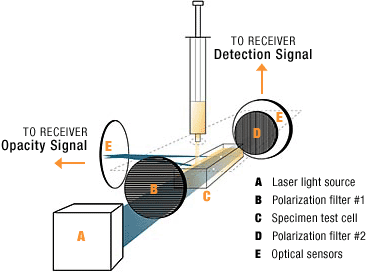|
Long duration flight at high altitude subjects aircraft fuel tanks to very low
temperatures, presenting threat of fuel line and filter blockage due to
hydrocarbon crystal formation. Heavy hydrocarbons and/or wax-containing products
can change a fuels’ cold behavior properties, creating significant flight safety
risk. Therefore, rigorous control of aviation fuels’ freeze point is important
at all stages between production and aircraft fueling, including intermediate
reloading points within the distribution system.
Detects all types of crystallization in all types of jet fuels
Highly reliable operation; not affected by ambient moisture
Perfect repeatability and reproducibility on neat samples
Perfect correlation with CRM, cross check and manual results
Built in cooling system cools sample to -120ºC without any external connection
Small footprint
ISL’s FZP 5G2s provides highly accurate freezing point determinations down to
-100ºC (-148ºF), helping you assure the low-temperature flow performance of your
aviation fuel. It combines a patented built-in cooling system and a unique,
patented detection cell into an ultra-compact, easy to use instrument that’s
ready to work whenever and wherever you are.
Simply inject approximately 10 ml of sample and press Test; no pre-test
programming is necessary. The unit automatically controls test progress and
deliver precise results in less than 15 minutes. Self-cleaning operation speeds
and simplifies testing, while smart software features assure accurate testing of
difficult and contaminated samples.
ISL's patented detection system
The freezing point of jet fuel is defined as the temperature at which the last
crystal melts when warming a fuel that has been previously cooled until
hydrocarbon crystals form. ISL’s unique, detection system utilizes powerful
optics and precise temperature control, providing highly reliable freezing point
measurements with excellent sensitivity to contamination levels. As the sample
is exposed to carefully monitored temperature changes, causing crystal to form
(during cooling) and dissolve (during reheating), the system’s unique
polarization filters and optics sensors precisely track the refraction of light
as it passes through the sample.

The method, which is based on fundamental optical laws,
detects all types of crystallization for any type of jet fuel. Smart detection
software precisely determines Freeze Point according its definition for aviation
fuels, reporting results in perfect correlation to the manual test method --
whether the sample being tested is neat or contaminated.
METHOD DEVELOPMENT...
During the Summer of 2003, ASTM and its European counterpart, the Institute of
Petroleum, will perform a joint inter-laboratory freeze point study that
includes ISL's enhanced method with contamination detection. |